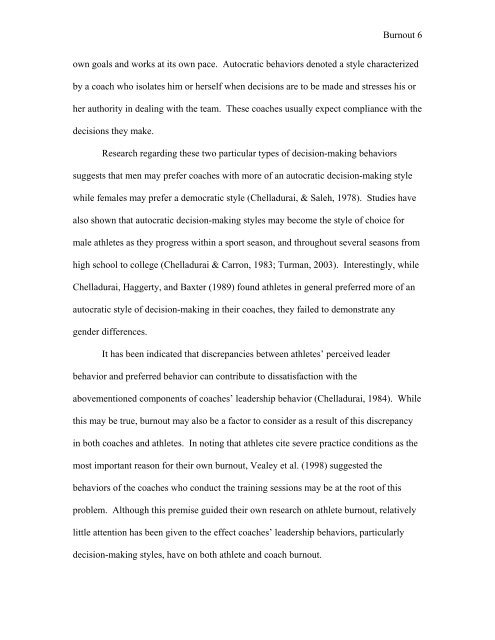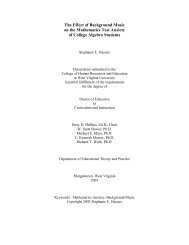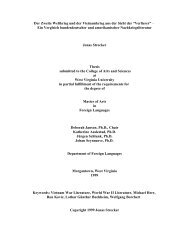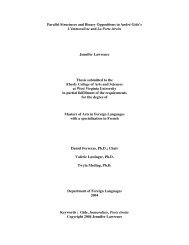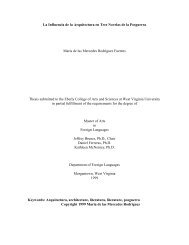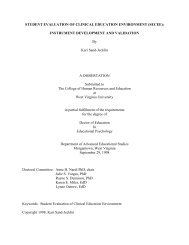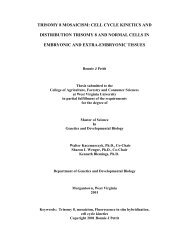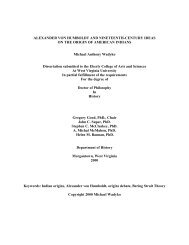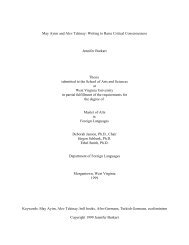Coach and Athlete Burnout - West Virginia University
Coach and Athlete Burnout - West Virginia University
Coach and Athlete Burnout - West Virginia University
You also want an ePaper? Increase the reach of your titles
YUMPU automatically turns print PDFs into web optimized ePapers that Google loves.
<strong>Burnout</strong> 6<br />
own goals <strong>and</strong> works at its own pace. Autocratic behaviors denoted a style characterized<br />
by a coach who isolates him or herself when decisions are to be made <strong>and</strong> stresses his or<br />
her authority in dealing with the team. These coaches usually expect compliance with the<br />
decisions they make.<br />
Research regarding these two particular types of decision-making behaviors<br />
suggests that men may prefer coaches with more of an autocratic decision-making style<br />
while females may prefer a democratic style (Chelladurai, & Saleh, 1978). Studies have<br />
also shown that autocratic decision-making styles may become the style of choice for<br />
male athletes as they progress within a sport season, <strong>and</strong> throughout several seasons from<br />
high school to college (Chelladurai & Carron, 1983; Turman, 2003). Interestingly, while<br />
Chelladurai, Haggerty, <strong>and</strong> Baxter (1989) found athletes in general preferred more of an<br />
autocratic style of decision-making in their coaches, they failed to demonstrate any<br />
gender differences.<br />
It has been indicated that discrepancies between athletes’ perceived leader<br />
behavior <strong>and</strong> preferred behavior can contribute to dissatisfaction with the<br />
abovementioned components of coaches’ leadership behavior (Chelladurai, 1984). While<br />
this may be true, burnout may also be a factor to consider as a result of this discrepancy<br />
in both coaches <strong>and</strong> athletes. In noting that athletes cite severe practice conditions as the<br />
most important reason for their own burnout, Vealey et al. (1998) suggested the<br />
behaviors of the coaches who conduct the training sessions may be at the root of this<br />
problem. Although this premise guided their own research on athlete burnout, relatively<br />
little attention has been given to the effect coaches’ leadership behaviors, particularly<br />
decision-making styles, have on both athlete <strong>and</strong> coach burnout.


